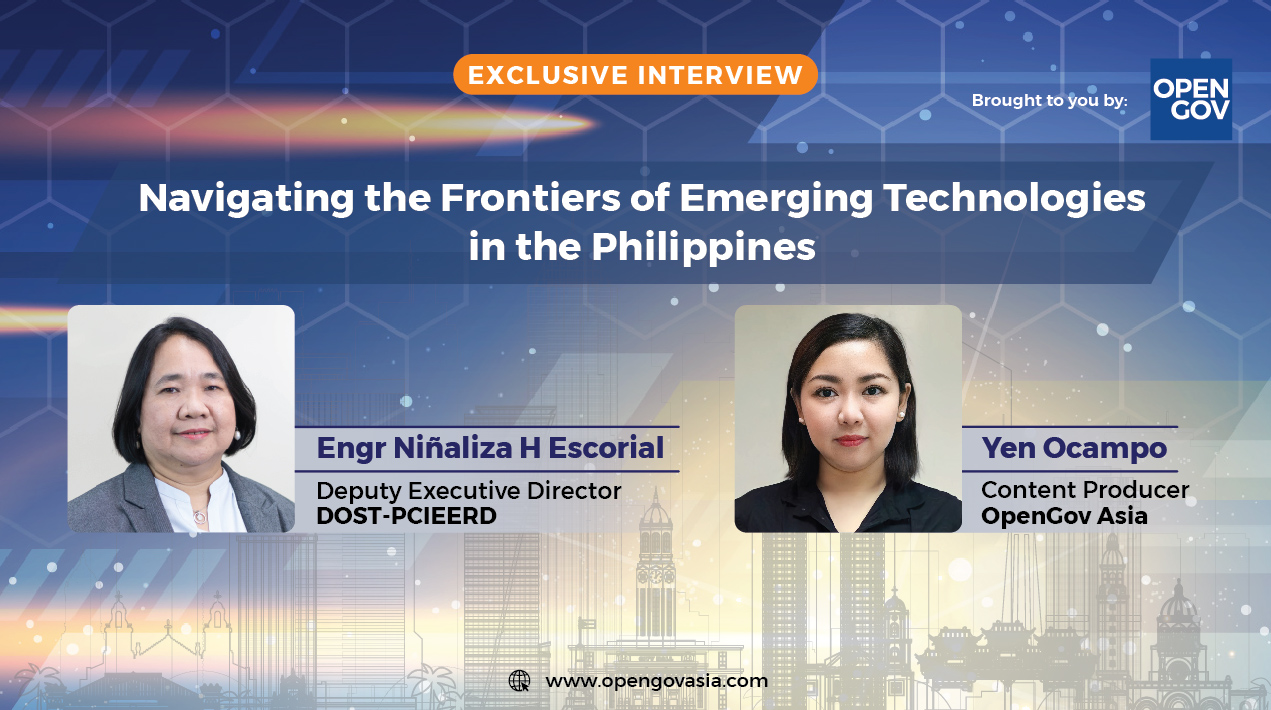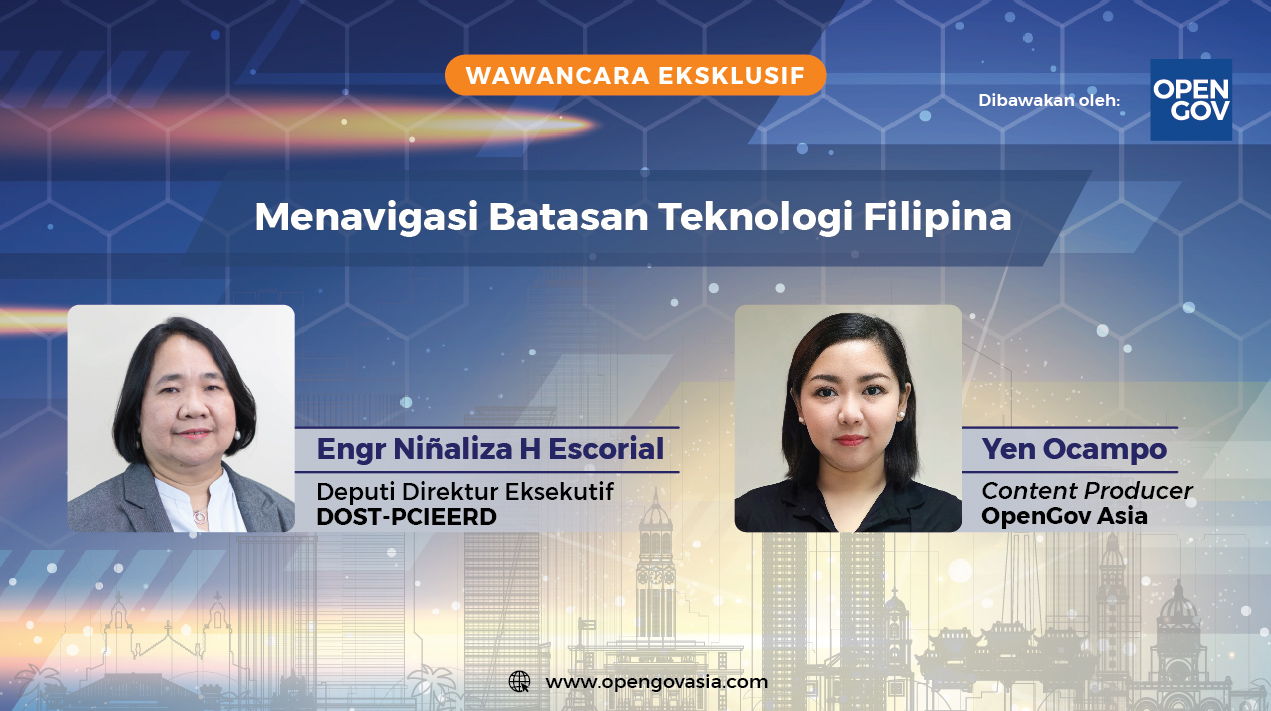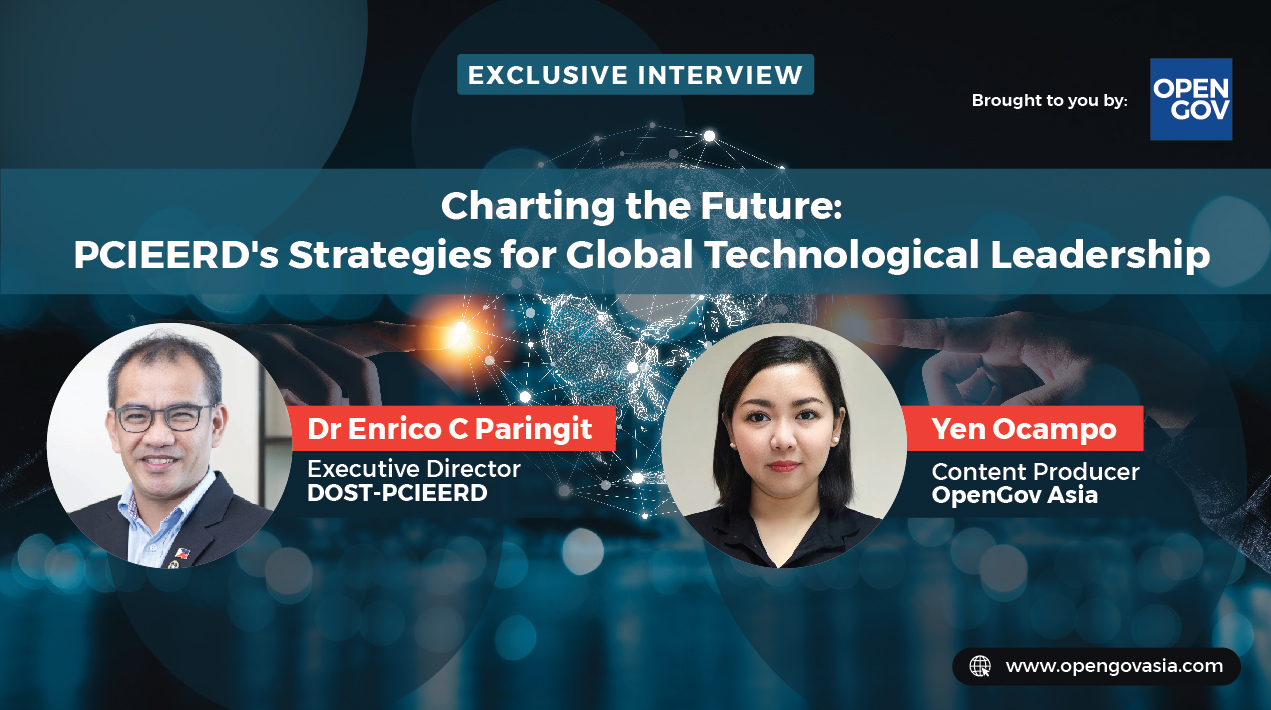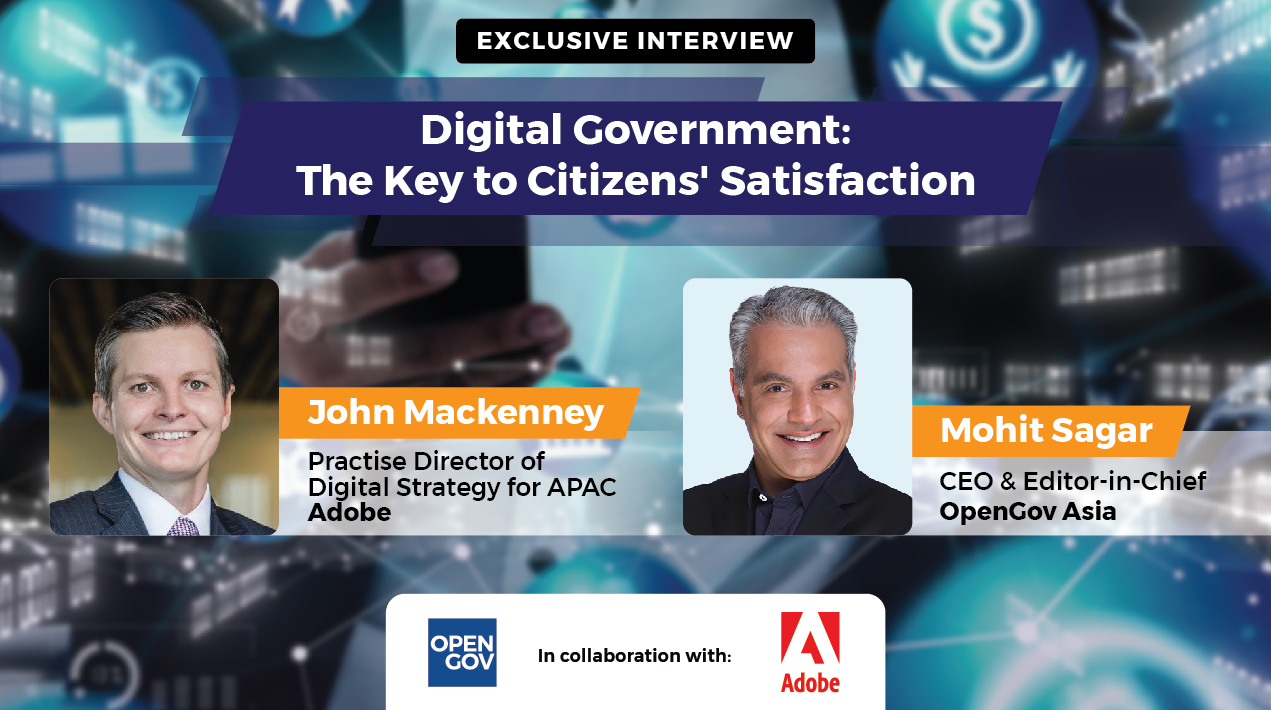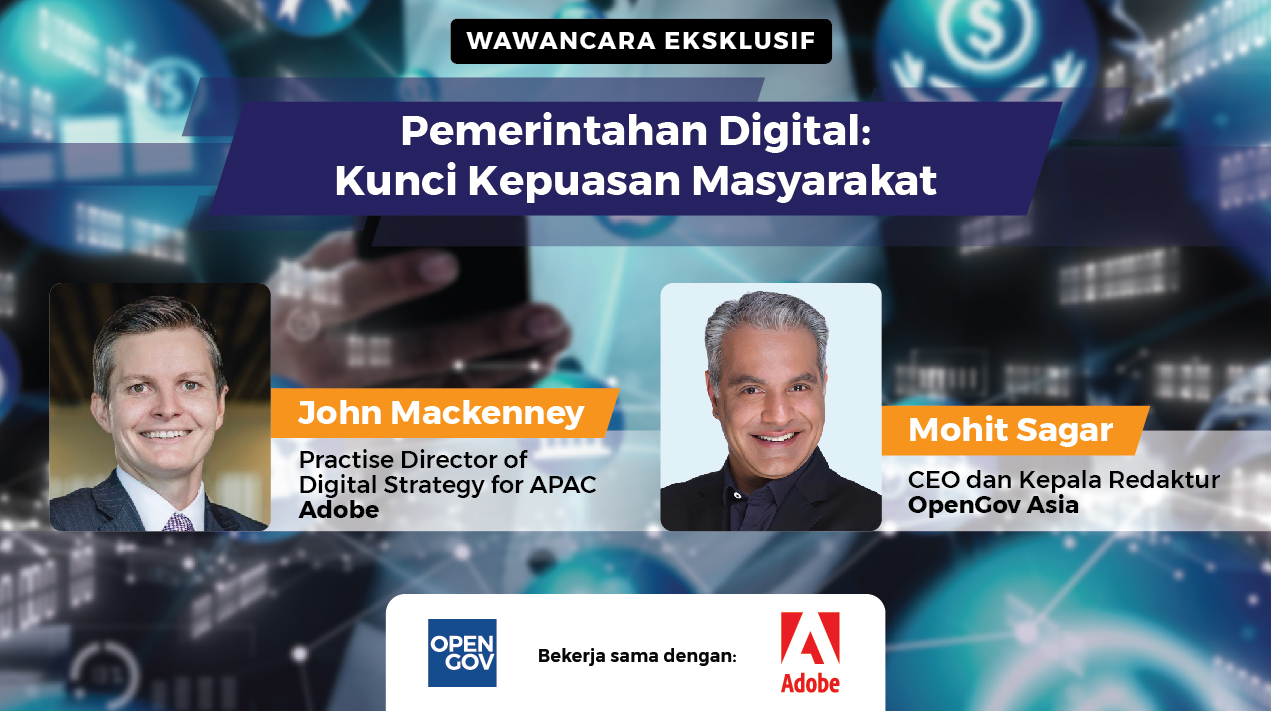MAMPU drives Digital Transformation in Malaysia
Malaysia’s journey towards digital transformation is spearheaded by the Malaysian Administrative Modernisation and Planning Unit (MAMPU). They are the guiding force behind ICT integration and utilization in the Malaysian public sector.
MAMPU organized the Forum Digital Service Repository 2015, held on 8th October, which brought together ICT leaders of government agencies. Through this forum, MAMPU provided not only opportunities to network, but also to collaborate.
Partnerships are imperative to technology advancement. In sharing ideas and data, agencies may provide their citizens with greater services. This forum also aims to inspire agencies to realise the benefits of IoT implementation.
Dr. Suhazimah Binti Dzazali, Deputy Director General ICT at MAMPU, spoke to OpenGov to tell us about the new services introduced by MAMPU, how the Malaysian government is handling innovation, and what we can expect from MAMPU in 2016.
Five new Apps and Services introduced by MAMPU
First – the reintroduction of MAMPU’s Digital Document Management System for the public sector. “The Digital Document Management System (DDMS) system was launched 3 years ago. This year saw an exponential adoption by agencies that shifted to DDMS from the manual paper-based documentation,” says Dr. Suhazimah.
When it came to the adoption of DDMS, agencies were often worried about security. To deal with this, MAMPU started the journey by letting agencies work with unclassified data. This gave them a chance to adapt to the system and prove it robustness.
Second – MAMPU has the AppGen service, which helps government agencies generate apps in an efficient manner.. Previously, agencies relied on generating their apps independent from MAMPU. Now there is a structured infrastructure for government application generation.
Third – MAMPU launching the Gallery of Mobile Applications from the Government of Malaysia (GAMMA). This platform is a one-stop shop for government applications. It ensures that the apps are secure and legitimate for citizens to access. GAMMA will eliminate the need to download government apps one-by-one, streamlining all apps into one destination.
Fourth – 1GovEA, the Enterprise Architecture Blueprint, is a structured approach used to define an organisation across different domains. 1GovEA will be implemented in several phases across all agencies, starting with MAMPU in Phase 1, followed by selected agencies in Phase 2 and after that, other public sector agencies in subsequent phases. The implementation approach is divided into 3 different stages and is supported by Project Management Office and Change Management Office work streams that run across the implementation plan.
Fifth – 1GovUC was introduced, or One Government Unified Communications, which creates a more collaborative and secure network for government. Boosting unified communications throughout government will allow for less travel discrepancies, lower costs, greater collaboration and more efficient operations.
Data Drives Malaysia
Big Data Analytics was widely discussed during the forum. The Malaysia OpenGov Excellence Awards 2015 acknowledged the agencies, which have been successful in using big data analytics for greater public sector solutions.
MAMPU is driving data sharing among government agencies. In their Tenth Plan for ICT, they recognized that opportunities for open data coordination and sharing would enhance public service delivery. Take the 1Malaysia One Call Centre (1MOCC), for example. 1MOCC acts as a single point of contact to respond to any public enquiry, complaint, suggestion, or feedback. This system has resulted in optimization of resources and more effective collaboration between ministries and agencies in providing services to the public.
“[We are] getting forum participants to start thinking, ‘There is connectivity to open data’. Government agencies are in the position to reflect on the data in their custody, they can start thinking about what data we can make open. Yet, if you do not have the capability to run data analytics, it is not serving its full purpose of improving service delivery or to create better business,” said Dr. Suhazimah.
She further implied that MAMPU is working hard to get people to see the connectivity and synergy between big data, analytics, open data, and IoT.
IoT to improve Service Delivery
With respect to IoT integration, which was part of the forum theme, the public sector is starting to really appreciate how it can help improve services and operations throughout Malaysia.
“It is about governance, having a common ecosystem, people recognising that amidst the technological benefits there are risks,” Dr. Suhazimah told us, “One good thing about IoT is that you get lots of data from a multitude of sources. This was in line with what YGhg. Tan Sri Dr. Ali Hamsa, Chief Secretary to Malaysia said earlier in the day.
The Path to the Future
In Chapter 9 of the 11th Malaysia Plan, the Malaysian Government will become more citizen-centric and focus on enhancing the efficiency and productivity of public service. The plan will create key transformative changes in the public sector. Moving from bureaucratic procedures to simplified procedures, from government as a service provider to government as a service facilitator, and from governing for citizens to participatory governance to name a few.
Dr. Suhazimah highlighted that governance is the key ingredient for agencies to adopt and maintain a sustainable ICT infrastructure. Agencies are prompted to apply ICT technology which specifically serves the use case. She says that agencies must demonstrate a need to adopt technology that serves the citizens, not technology that is just ‘cool’.
MAMPU is coming up with a security framework and standards for public sector ICT integration. These standards are based on those available by International Security Organisation, which MAMPU has adopted. Where required some of the standards will be customised to achieve public sector objectives.
“These [standards] cover big data, open data, online services, security, and digital certificates. The guidelines will tell agencies what is the policy, what are the operational guidelines, what are the technical guidelines, so when an agency wants to adopt this public infrastructure or digital certificate, they are guided through the process,” Dr. Suhazimah explained.
What should we expect from MAMPU in 2016?
In 2016, MAMPU will continue its goal of designing public services around people and business. Since the inception of the Malaysia Plan, 77 percent of government services are provided online, out of a total of 13,483 services. Moving forward, MAMPU will be looking to consolidate these services.
“The year 2016 is about looking at the 11,000 online services offered. We must come up with a more useful, citizen-centric mindset to assess these services,” Dr. Suhazimah tells us. A consolidation of services requires agencies to work closer together or in clusters, as Dr. Suhazimah suggests.
Dr. Suhazimah also foresees that ‘Data Driven Business Optimisation’ will be an area of focus in the coming year.
“MAMPU is trusted to be a catalyst to technology and its production,” she says. Many agencies at the forum could not agree more, as people are keen to mention MAMPU. MAMPU is the guiding light of the journey towards greater service virtualisation and digital transformation in Malaysia.



